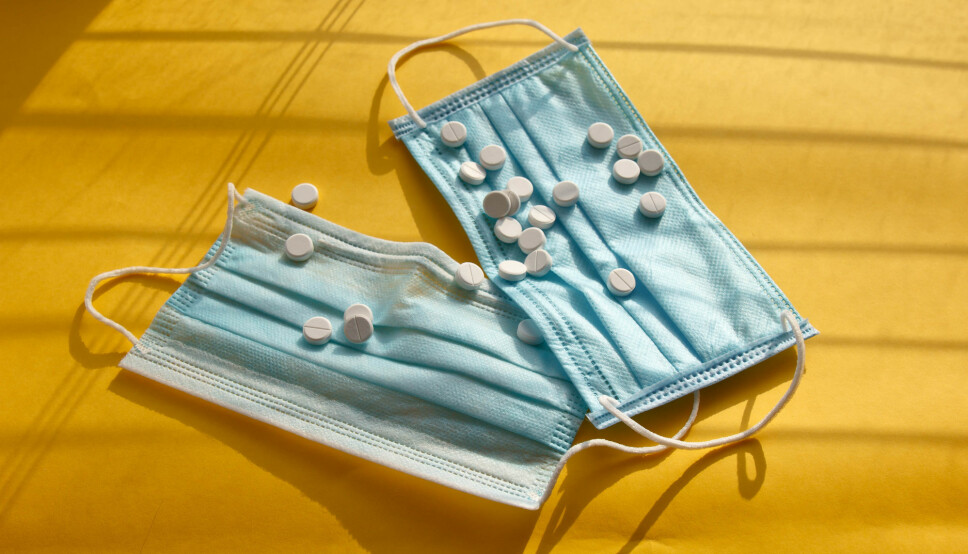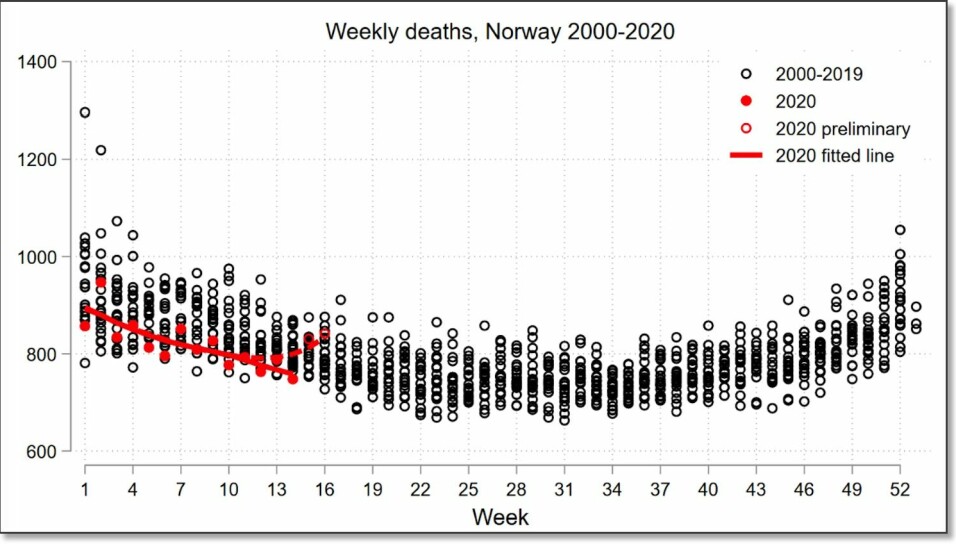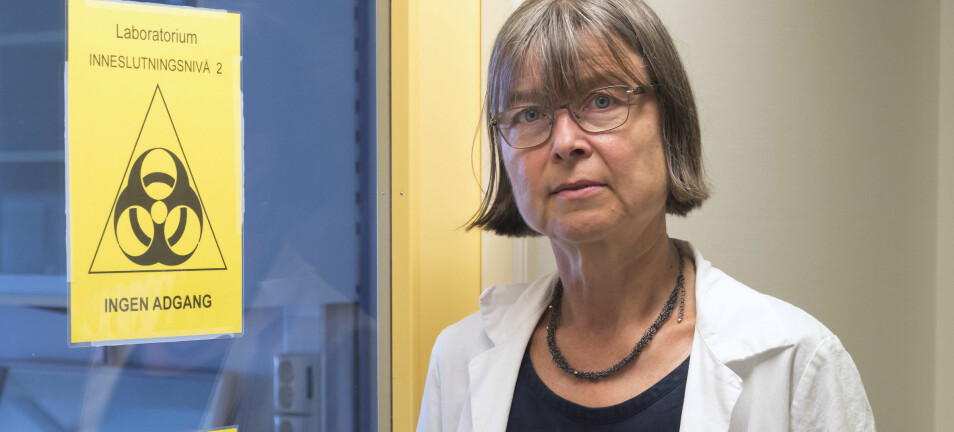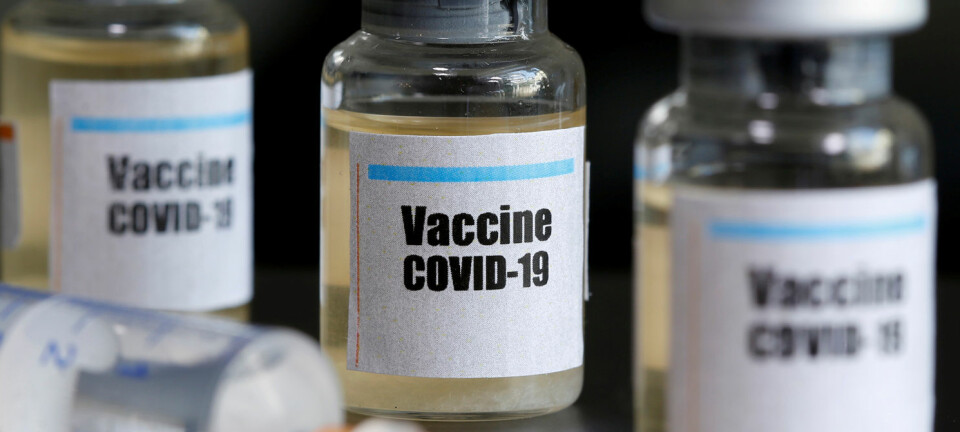
Can vitamin D protect you from COVID-19?
Several researchers believe we should recommend vitamin D supplements to fight the coronavirus. Some of the cited evidence, however, is produced by researchers sponsored by vitamin-D manufacturers, and one study appears in a predatory journal.
When we face an illness that we don’t know how to cure, anything that might be helpful sounds interesting.
Recently, several researchers have suggested that vitamin D supplements may help protect people against the coronavirus SARS-CoV-2.
This vitamin, which is produced in the skin when we are exposed to the sun, is important for our immune system. Some researchers now recommend taking very high doses.
But Professor Jutta Dierkes at the University of Bergen warns that research on the effect of vitamin D is divided, and there is little to indicate that taking large doses is helpful.
Most corona found in the north
Several researchers have suggested that vitamin D may play a role in the fight against COVID-19.
Recently, for example, Jonathan M. Rhodes and colleagues commented on the topic in the research journal Alimentary Pharmacology and Therapeutics.
"It is time for governments to strengthen recommendations for vitamin D intake and supplementation, particularly when under lock‐down", the researchers wrote.
Among the rationales was a new study in Alimentary Pharmacology and Therapeutics showing that the corona epidemic seems to be hitting countries that are above 35 degrees north latitude harder compared to regions closer to the equator.
The 35th latitude crosses the Mediterranean. This also happens to be the limit for where sunlight is so weak in winter that people living there are unable to keep their vitamin D levels up throughout the year, according to Rhodes and colleagues.
Recommend high doses
The same argument emerges in an article in the research journal Nutrients.
Researcher William Grant and his colleagues write that vitamin D may be one of the explanations for why the virus is striking the elderly and chronically ill especially hard. Previous research indicates that these groups often have low levels of vitamin D.
Grant and colleagues recommend large doses of vitamin D to reduce the risk of influenza and COVID-19.
They suggest starting with daily doses of 10 000 IU (250 micrograms). By comparison, the recommended daily dose in Norway is 400 to 800 IU (10 to 20 micrograms).
Important for the immune system
According to Grant, such recommendations are supported by research in the field.
Previous studies, for example, have shown that vitamin D deficiency can contribute to acute respiratory distress syndrome – a serious condition that could affect COVID-19 patients, he writes.
Many studies have also shown that vitamin D can counteract viruses and bacteria in a variety of ways. In addition, the vitamin can help curb the violent and harmful immune response that some patients experience, say Grant and colleagues.
They cite several studies that recommend using vitamin D against infections, as well as specifically against COVID-19.
“A recent review suggests using vitamin D doses of 200 000 to 300 000 IU to reduce the risk and severity of COVID-19,” Grant writes in Nutrients.
Predatory journals and sponsored research
This review, however, was published in a journal that is listed as a predatory journal – meaning a journal which is unserious or fraudulent, and most importantly lacking in quality assessment.
Other cited studies were written by researchers from companies that produce vitamin supplements.
“The authors of Grant's article in Nutrients are not independent, either,” says Dierkes.
All but one of the authors receive money from vitamin D supplement manufacturers, sell supplements themselves, work for an organization sponsored by dietary supplement manufacturers, or sell vitamin D blood level tests.
Disappointing experiments
Professor Jutta Dierkes of the MOHN Nutrition Research Lab at the University of Bergen researches vitamin D. She's not at all convinced of the benefits of high-dose vitamin D.

“In the last 15 years, vitamin D has been hailed as a miracle cure that works for everything. That’s good reason to be on guard,” she says.
Dierkes says that the research on vitamin D and its various health effects has been rather unclear.
On the one hand, there have been some promising results, for example in studies on cell cultures. Several observational studies have also shown that people with high levels of vitamin D are at lower risk for a variety of diseases, such as heart disease and cancer.
But in studies where researchers actually test the effects of vitamin supplements in clinical trials with humans, the results have often been disappointing.
No great effect against infections
Dierkes points out that Grant's list of documentation contains a mix of studies on cell cultures, animals and humans.
She believes that they don’t necessarily provide any useful conclusions about vitamin D and the coronavirus.
She recommends looking at two systematic reviews instead, which summarize the results of clinical trials in which researchers gave vitamin D to some participants, while other participants were given only placebo pills.
One is a systematic review of research on the effects of vitamin D against infections such as tuberculosis, blood poisoning and pneumonia.
“The researchers found little evidence that it works against infections,” says Dierkes.
There appears to be a minor effect for people with vitamin D deficiency, write Malcolm Kearns and his colleagues.
Small effect for people with deficiency
In the second review, researchers summarized the data from a variety of experiments with vitamin D against acute respiratory disease.
“They found slightly reduced infection in patients who were given vitamin D,” says Dierkes.
Here, too, the effect seemed to apply to people with clear vitamin D deficiencies.
Dierkes points out that this result does not necessarily apply to COVID-19. But the effect is still interesting.
“I wouldn’t deny that vitamin D supplements can have an effect on the immune system. People with a deficiency can benefit from supplements. But if you have adequate vitamin D levels, a supplement won’t have any positive effect,” she says.
Most people in Norway have good levels of vitamin D, according to Dierkes.
“We’re good at taking cod liver oil, and we consume fish and enriched milk.”
Doesn’t recommend high doses
When it comes to vitamin D dosage, Dierkes does not recommend daily doses of 10 000 IU or higher. These are amounts that you would not be able to absorb naturally and which could increase the risk of side effects.
Several studies suggest that infrequent, very high doses of vitamin D have no positive effect on the body. It would thus be better to take daily small doses, Dierkes says.
“I don’t recommend high doses, even for people with low levels of vitamin D,” she says.
Levels quickly go up if you take 800 IU (20 micrograms) a day. People with a vitamin D deficiency experience a greater effect from taking lower doses, says Dierkes.
She advises people in Norway to continue their good habits of eating fish, which is a good source of vitamin D. Those who don’t eat much seafood can take cod liver oil or a regular daily dose of vitamin D supplements during the winter.
In the summer, it is simply a matter of getting out in the sun.
A few minutes of sunshine on unprotected skin are enough to give our body the refill boost it needs.
Translated by: Ingrid P. Nuse
This article was updated on May 13 at 11:25 - a quote by Rhodes and colleagues in the second paragraph had been translated from English to Norwegian and back again, and was changed to the actual quote in English.
References:
JM Rhodes, S. Subramanian, E. Laird, RA Kenny, Editorial: Low population mortality from COVID‐19 in countries south of latitude 35 degrees North - supports vitamin D as a factor determining severity, Alimentary Pharmacology and Therapeutics, April 2020. Summary .
W. B. Grant, et al., Evidence that Vitamin D Supplementation Could Reduce Risk of Influenza and COVID-19 Infections and Deaths, Nutrients, April 2020.
M. D. Kearns et al., The impact of vitamin D on infectious disease: a systematic review of controlled trials, The American Journal of the Medical Sciences, 2015. Summary.
A. R Martineau et al., Vitamin D supplementation to prevent acute respiratory tract infections: systematic review and meta-analysis of individual participant data, BMJ, 2017.
———
Read the Norwegian version of this article on forskning.no



































